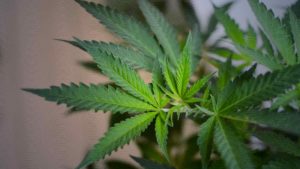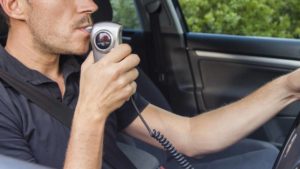INTOXICATION OFFENSES
DWI and DUI Charges in Denton County
There is a lot of propaganda out there. You see the signs – “drink, drive, go to jail;” “buzzed driving is drunk driving;” “DWI: you can’t afford it…” While this may be effective propaganda, it is actually NOT the law in Texas. In Texas it is legal to consume alcohol and then drive as long as you are at least 21 and not intoxicated. Intoxicated has a specific definition under the law.
Intoxicated, under Texas law, means:
- having a breath or blood test of .08 or greater at the time of driving; OR
- not being normal mentally because of the introduction of alcohol and/or drugs into the body; OR
- not being normal physically because of the introduction of alcohol and/or drugs into the body.
The burden is on the prosecution to prove intoxication. This is where the standardized field sobriety tests (SFST’s) come into play and it is important to have a lawyer who is well versed in these tests. People often ask if they should take a breath or a blood test. That’s a pretty loaded question. A breath test machine is just that – a fallible, man-made machine. There are many variables that can affect or inflate the result. Blood tests are generally more reliable but human error can be, and often is, a major factor in the results – specifically, proper chain of custody and storage of blood specimens. It is also important to remember that the State must prove that you were driving while intoxicated not when you blow into the machine or when your blood is drawn.
Breath and Blood Tests
If you are 100% certain that you can take and pass a breath and/or blood test and are 100% confident in the machine and human operators, then take the test. I have not met anyone who fits that criteria. Otherwise, recognize that you have the statutory and constitutional right to politely decline the request. Understand that, pursuant to the Fourth Amendment, police have the ability to apply for and obtain a search warrant for your blood. Depending on what the breath or blood test score is, your age (whether under 21), and whether there is a history of intoxication offenses, you may be required to keep and maintain an ignition interlock device as a condition of your bond or any interlock/occupational driver’s license.
Drug DWI
Drug DWI’s are occurring with more regularity these days. The drug intoxicant can be prescribed or illicit. These are interesting cases because unlike alcohol DWI’s, there is no per se (number) limit on drug cases. Ms. Roland has working knowledge and experience in trying drug DWI cases.
Driver’s License Suspension Issues
Driver’s license suspension issues accompany every DWI allegation. Although the driver’s license suspension arises out of the DWI arrest, the driver’s license hearing is completely separate. It is easy to make yourself crazy with all the information on the internet about DWI’s in Texas and nearly impossible to know what applies to your situation and what doesn’t. Therefore, it is important to have a lawyer familiar with defending these types of cases when you are accused of an intoxication offense. Talk to Sarah about your options.
Classifications of DWI Charges
DWI (1st):
Offense Level:
Class B Misdemeanor
Punishment:
72 hours – 180 days confinement in County Jail and a fine not to exceed $2,000. If a person has never before been convicted of a felony, probation can be an option.
DWI with a BAC of 0.15 or higher (1st):
Offense Level:
Class A Misdemeanor
Punishment:
0 – 365 days confinement in County Jail and a fine not to exceed $4,000. If a person has never before been convicted of a felony, probation can be an option. An Ignition Interlock Device is required as a condition of probation by state law.
DWI with a prior DWI conviction (DWI 2nd)
Offense Level:
Class A Misdemeanor
Punishment:
30 – 365 days confinement in County Jail and a fine not to exceed $4,000. If a person has never before been convicted of a felony, probation can be an option. An Ignition Interlock Device is required as a condition of probation by state law.
Felony DWI with a Child Passenger Under 15 Years of Age
Offense Level:
State Jail Felony
Punishment:
180 days – 2 years confinement in State Jail Division of the Texas Department of Criminal Justice and a fine not to exceed $10,000. If a person has never before been convicted of a felony, probation can be an option.
Felony DWI with 2 or more prior convictions
Offense Level:
Third-Degree Felony
Punishment:
2 – 10 years confinement in the Institutional Division of the Texas Department of Criminal Justice and a fine not to exceed $10,000. If a person has never before been convicted of a felony, probation can be an option. Probation for this offense can be as long as 10 years.



